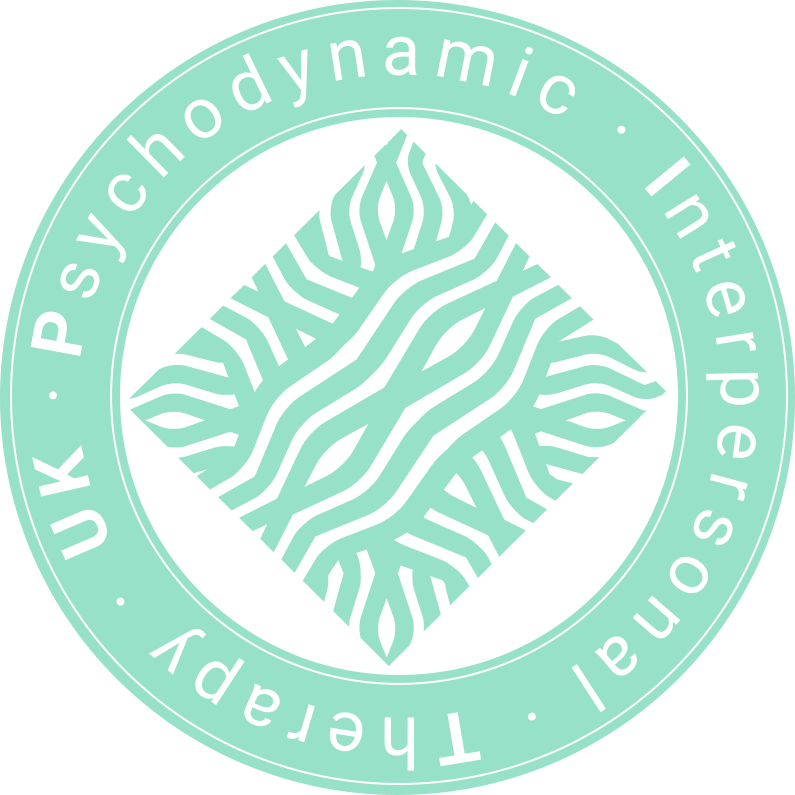PIT-UK November Conference:
CHANGE in Psychodynamic Interpersonal Therapy: great success!
The conference was held on 21st November at St Thomas Centre in Manchester and the feedback about the venue and the conference was very positive!


Hobson presentations to SAP 1997 available

This presentation, in two parts is available on the Films page
Or you can access them here
Part 1 Believing and Doing in Psychotherapy
Part 2 Believing and Doing in Psychotherapy

New issue of The Therapeutic Conversation now available free for members
Introduction from the Editor Chris Garvie
Welcome / Kia Ora to the 10th issue of The Therapeutic Conversation.
We begin TTC10 with two ‘hot topic’ papers from Jamie Rickord and Toby Clark. Jamie’s paper is titled Psychedelic Assisted Psychotherapy: A New Kind of Conversation, while Toby offers us his treatise on Mystical States & Psilocybin: From Dissociation Towards Association: A Conversational Model Discussion. I have no doubt we will all benefit from their contributions to TTC as we grow our understanding of this emerging area of psychotherapy.
Dan Beales then offers us a fascinating read, Being and Doing in Psychotherapy, in the form of an edited transcript of a talk given by Bob Hobson at the Guild of Pastoral Psychology.
Shaun Halovic then brings us a stimulating paper, Krapopoli and Empathic Contagion: Empathy Bad, Narcissism Good?, based on an animated tv series.
The final offerings in TTC10 are from Nick Bendit and Tania Polhill, and are both of a creative orientation. Nick’s short story, Landfill of the Mind, is based around the therapeutic work with a patient within the broader context of the public health system. Poetry is becoming a fixture within each edition of TTC these days, and this edition is no different. Tania’s poem, We of the Red Seat, centres on the experience of the client within therapy.
TTC10 concludes with our regular updates on what’s been happening within ANZAP, PIT-UK and Westmead, along with events to book into your diaries in the Upcoming Events section.
I remain very grateful for the support I have from the recently-expanded TTC editorial team. Thanks team!
I am also happy to report that Brenton Webb has agreed to take over as editor of TTC following the release of TTC11 in November. Thanks Brenton!
Chris Garvie
Members can access the page here


New Research Project: Psychodynamic Interpersonal Therapy for Psychosis (PITp)
A new NIHR-funded research project is underway in Manchester to explore the feasibility and acceptability of Psychodynamic Interpersonal Therapy for psychosis (PITp). The study investigators include Liz Murphy, Frank Margison, Rebecca Hughes, Richard Brown, Joanna Brooks, Sandra Bucci, and Tony Morrison.
It is increasingly recognised that interpersonal and emotional processes play a significant role in the development and maintenance of psychosis. However, access to relational therapies in psychosis services remains limited. PIT therefore has the potential to offer a meaningful therapeutic option for people experiencing psychosis.
The study aims to explore the feasibility and acceptability of PITp and includes three phases:
- Refining the PITp approach in collaboration with service users and clinicians, including interviews and focus groups with service users, psychosis staff, and PIT therapists.
- A feasibility randomised controlled trial to explore recruitment, retention, and the feasibility of delivering PITp in a trial context.
- Post-therapy interviews to understand participants’ experiences of engaging in PITp.
The results are intended to inform proposals for a larger randomised controlled trial in future.
For further information, please contact: elizabeth.murphy@gmmh.nhs.uk

Forthcoming CPD

13th February 2026

Music and Conversation:
Music as a form of feeling in the Conversational Model
Presenter: Frank Margison
Hobson and Meares’s work on the Conversational model was a major advance in our understanding of psychotherapy- synthesising a conversational approach to depth psychology whilst also offering a model that was richly embedded in theory and open to empirical testing>
In Forms of Feeling (1985) the emphasis was on the written word as a way in to understanding the conversation- through Wordsworth, Blake, Coleridge, Donne, Shakespeare. That was not to play down the importance of gesture, movement, visual representation, prosody, all of which are described in depth.
But, Hobson wrote relatively little that was specific about music and the conversation
This paper develops the brief sketch that Hobson provides.
The presentation explores forms of feeling in a musical context and draws on the emergence of form through the structure of music, affective attunement and vitality affects, mirror neurons and music, and transformation of affect through music


SUPERVISION COURSE
Currently running
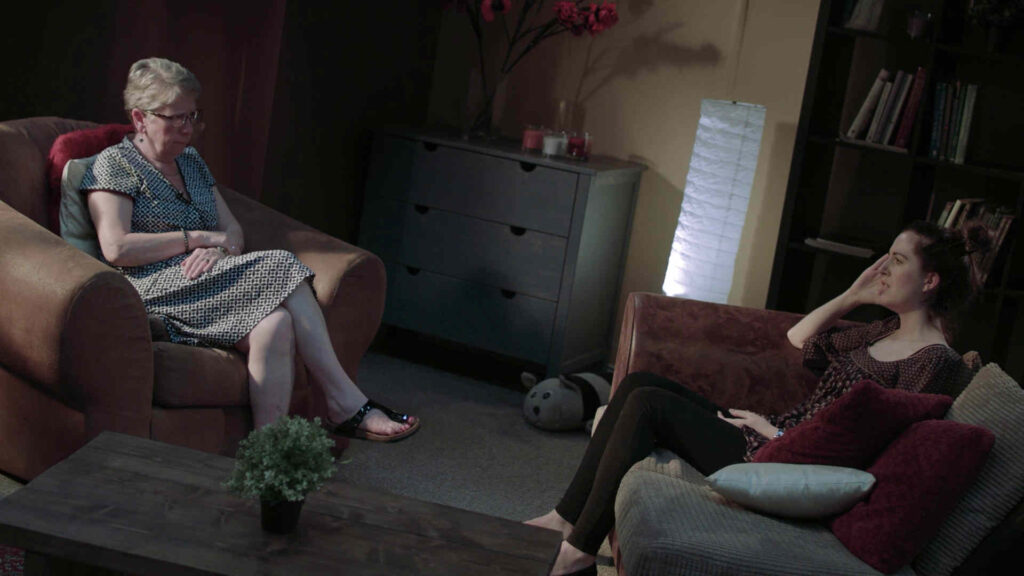

All-star Cricket team with Bob Hobson
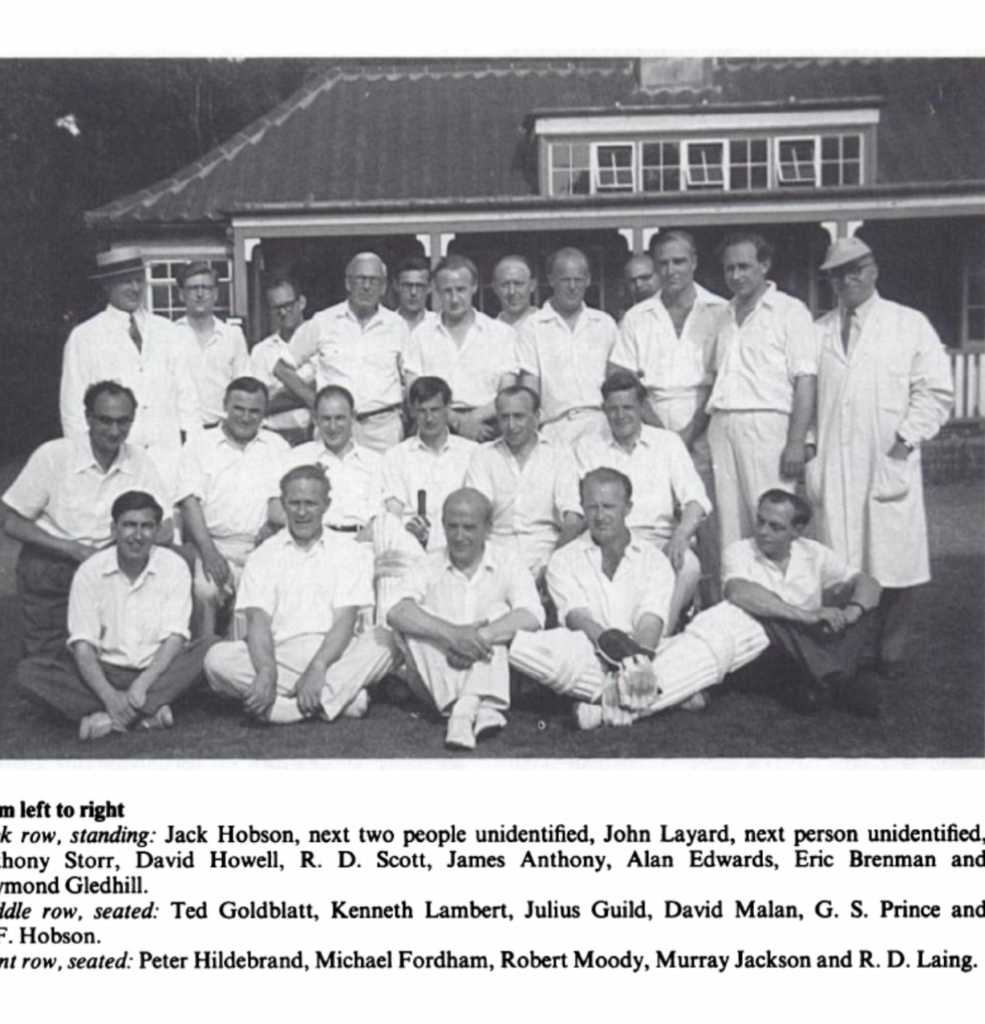
How many names of these past stars of cricket and psychotherapy do you recognise?

CPD Programme 2025
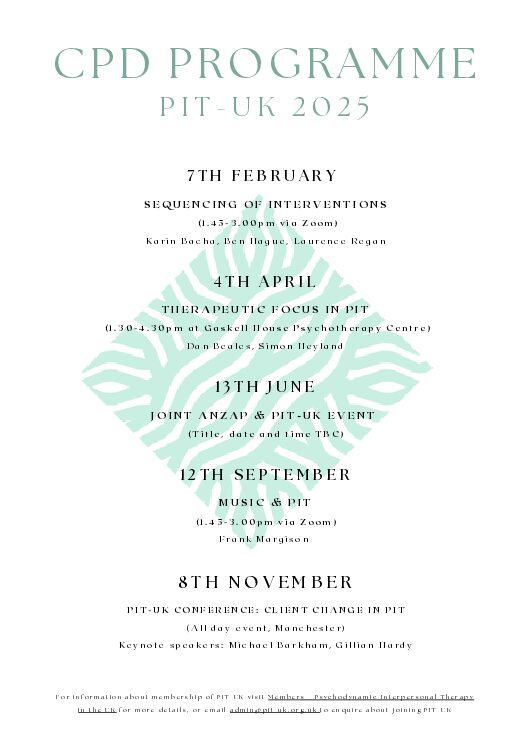
CPD PROGRAMME
P I T – U K 2 0 2 5
7th F E B R U A R Y
S E Q U E N C I N G O F I N T E R V E N T I O N S
( 1 . 4 5 – 3 . 0 0 p m v i a Z o o m )
K a r i n B a c h a , B e n H a g u e , L a u r e n c e R e g a n
4th A P R I L
T H E R A P E U T I C F O C U S I N P I T
( 1 . 3 0 – 4 . 3 0 p m a t
G a s k e l l H o u s e P s y c h o t h e r a p y C e n t r e )
D a n B e a l e s , S i m o n H e y l a n d
1 3th J U N E
J O I N T A N Z A P & P I T – U K E V E N T
( T i t l e , d a t e a n d t i m e T B C )
1 2th S E P T E M B E R
M U S I C & P I T
( 1 . 4 5 – 3 . 0 0 p m v i a Z o o m )
F r a n k M a r g i s o n
8th N O V E M B E R
P I T – U K C O N F E R E N C E :
C L I E N T C H A N G E I N P I T
( A l l d a y e v e n t , M a n c h e s t e r )
K e y n o t e s p e a k e r s :
M i c h a e l B a r k h a m , G i l l i a n H a r d y


New issue of TTC
Volume 1 Issue 9 November 2024
The new issue of The Therapeutic Conversation is a special issue commemorating the life of Robert Hobson who died November 1999

Free access is available to members
The issue contains the three papers from this year’s joint ANZAP/ PIT-UK conference by Dan Beales, Colette Rayment and Frank Margison
Go to Members: Learners: The Therapeutic Conversation and download from the list

Loss of Russell Meares

We have learned of the sad loss of Russell Meares – co-founder of the Conversational Model with Bob Hobson.
He died on 11th June after a series of admissions culminating in pneumonia. His wife, Sue, said he had died peacefully in the end.
Pit-UK has sent deepest condolences to Sue and to the Australia / New Zealand half of the Conversational Model family.
We will bring you more news about commemoration of his life when we know. For a brief outline of how big a part he played in the Conversational Model see a summary of his views in The Conversational Model: An outline and also our overview page.

The Therapeutic Conversation
Back issues now available on Members’ Only page
VOLUME 1 Issue 8
CONTENTS
From Coleridge’s Conversational Poems to the Conversational Model P 2
Collette Rayment
ADHD – Attention Deficit or Deficit of Attention? A Reverie on Attachment, the Self and Discontinuity P. 13
Laura Wilson
The Learning Journey P. 22
MJ Basilio
Trauma and Value: reflections on the emergence of affective neuroscience P24.
Anthony Korner
Responding to Loss Events in Psychodynamic Interpersonal Therapy (PIT). Extract from a Training Video on Loss. P 33
Mary Lewis

See latest Posts

Latest news
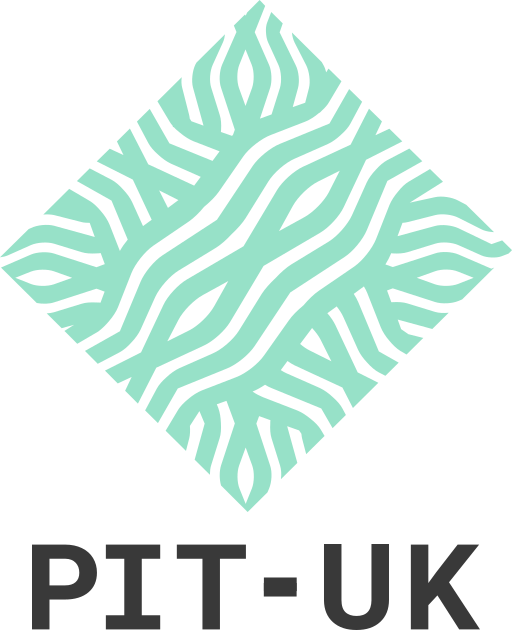
The PIT Special Interest Group earlier this year became a formal organisation called PIT-UK. This change is part of a range of activities intended to promote the dissemination of PIT, in particular by providing more resources and activities aimed at helping you with your continuing professional development. You will be aware from previous messages and via our journal The Therapeutic Conversation (created jointly with the Australia & New Zealand Association for Psychotherapy) that these include the journal, the bimonthly CPD sessions, the annual training day, the new website, the suite of new training films, and the new PIT Practitioner Course
We are pleased to be able to announce that all the preparatory work has now been completed to enable PIT-UK to admit members… so PIT-UK will be opening for membership on 1st January 2024!
Resources and activities currently happening piecemeal will from 2024 onwards be member benefits, there will be new ‘members-only’ benefits, and in addition PIT-UK members will get a substantial discount on CPD event fees (including the annual training day)
There will be three categories of membership – full Member; Associate Member; Associate Member+. These are all described below. Many of the people currently on the PIT-UK email distribution list will be full members.
FULL MEMBER
Full members of PIT-UK are mental health professionals with some prior training in PIT who want to further develop their understanding and skills in order to enable them to practise, supervise and teach PIT. They will hold a professional qualification in mental health (clinical or counselling psychology; counselling; psychotherapy; nursing; psychiatry; social work; occupational therapy).
They will have completed the University of Manchester PIT Introductory course or an equivalent basic training in PIT. (Examples of equivalent training would be completion of the PIT module within a clinical psychology doctorate, bespoke PIT training courses run by members of PIT-UK, participation in a PIT research trial, or a supervised PIT placement)
1. High-quality streaming access to the full suite of eight new PIT-UK training films
2. Access to slides and Zoom recordings of most PIT-UK CPD events
3. Receive The Therapeutic Conversation journal and PIT-UK Newsletters and email updates
4. Access website with additional teaching materials such as training materials on role plays, learning PIT and developing skills
5. 25% discount on booking fees for all PIT-UK CPD events including the annual training day
Fee: £75 per year
An associate member of PIT-UK will wish to have information about PIT and attend events, but need not fulfil the eligibility criteria above regarding professional qualification and PIT training.
Benefits:
1. Training materials on role plays, learning PIT and developing skills on the website
2. High-quality streaming access to limited PIT-UK training films
3. Receive The Therapeutic Conversation journal and PIT-UK Newsletters and email updates
Fee: £30 per year
ASSOCIATE MEMBER +
Becoming an Associate Member + means that in addition to the benefits of being an Associate member of PIT-UK you are granted access to the full suite of new PIT-UK training films
This category of membership will suit individuals with psychotherapy training responsibilities in NHS trusts
Fee: £75 per year
Whilst PIT-UK is a non-profit organisation it does have running costs, and therefore needs to charge fees like other similar psychotherapy bodies in the UK do. We are confident that the PIT-UK membership, event, and training fees are reasonable and represent excellent investments in your professional development. In particular PIT-UK offers to members a very generous discount on event fees, which in 2024 would mean a member could save £49 against the membership fee of £75!
Applications for membership of PIT-UK are now open. Please email admin@pit-uk.org.uk
with any questions or with the following information:
Name:
Category of membership applied for:
If full membership applied for, please list your professional qualification in mental health and your PIT training (eg year and nature of course attended):

30/03/23 PIT-UK constituted as a Company Limited by Guarantee Companies House registration is 14770144

Dates for 2025 PIT-UK meetings soon to be announced.
2025 Programme
To be announced soon
See Education-CPD

NEW LEVEL 1 PIT CPD COURSE NOW RUNNING!
PIT-UK Ltd runs an Introductory Course to introduce Psychodynamic Interpersonal Therapy
New dates to be announced

New Level 2 PIT Practitioner course: dates to be announced for 2026 in Summer 2025
The Practitioner Training involves a year of seminars and supervised practice.
It is organised through PIT-UK LTD
It is intended to give the expertise needed to be able to provide PIT with a high level of adherence and treatment integrity.

Research update: NIHR gives approximately £6m funding boost to research on PIT.
NHS funding body the National Institute for Health Research has recently invested almost £6m projects on three major studies investigating the efficacy of PIT in self harm
WORSHIP-III is a pragmatic trial of PIT for women offenders with repeat self-harm.
“To see if a talking therapy developed with women and prison staff for prisoners who self-harm, Psychodynamic Interpersonal
Worship-III
Therapy (PIT), will lead to less self-harm and be value for money for the NHS and improve the lives of women who self-harm in prison”.
Research lead is Professor Kathryn Abel
The award is £1,434,089.80
There is a major new study on self harm called SAFE-PIT looking at the effectiveness of PIT . It is run by Professor Else Guthrie and colleagues:
“We want to find out whether a type of brief therapy, psychodynamic interpersonal therapy (PIT), helps people who attend an emergency department (ED) after an episode of self-harm (SH), over and above NHS best care. We are interested in whether PIT helps people reduce future Self Harm, Emergency Department attendance and improve their mental health and quality of life”.
The Self-harm, Assessment, Formulation, Engagement Trial of Psychodynamic Interpersonal Therapy (SAFE-PIT)
The award is for £2,030,552.05
What about repeat self-harm?
This study with lead investigators Dr Cathy Brennan and Professor Else Guthrie asks
“Is brief psychodynamic interpersonal therapy (PIT) plus best care effective for people who attend hospital following self-harm (SH) compared to best care?”
FReSH START
Function REplacement in repeated Self-Harm: Standardising Therapeutic Assessment and the Related Therapy: FReSH START
The award is for £2,507,913.00
Recent research findings
A significant study comparing Conversational Model to DBT was published in 2020 showing broad equivalence between the two treatments for BPD in reducing suicidal behaviour
MORE INFORMATION ON WALTON ET AL 2020
Abstract
Objectives: Borderline personality disorder is a complex mental disorder that is associated with a high degree of suffering for the individual. Dialectical behaviour therapy has been studied in the largest number of controlled trials for treatment of individuals with borderline personality disorder. The conversational model is a psychodynamic treatment also developed specifically for treatment of borderline personality disorder. We report on the outcomes of a randomised trial comparing dialectical behaviour therapy and conversational model for treatment of borderline personality disorder in a routine clinical setting.
Method: Participants had a diagnosis of borderline personality disorder and a minimum of three suicidal and/or non-suicidal self-injurious episodes in the previous 12 months. Consenting individuals were randomised to either dialectical behaviour therapy or conversational model and contracted for 14 months of treatment (n = 162 commenced therapy). Dialectical behaviour therapy involved participants attending weekly individual therapy, weekly group skills training and having access to after-hours phone coaching. Conversational model involved twice weekly individual therapy. Assessments occurred at baseline, mid-treatment (7 months) and post-treatment (14 months). Assessments were conducted by a research assistant blind to treatment condition. Primary outcomes were change in suicidal and non-suicidal self-injurious episodes and severity of depression. We hypothesised that dialectical behaviour therapy would be more effective in reducing suicidal and non-suicidal self-injurious behaviour and that conversational model would be more effective in reducing depression.
Results: Both treatments showed significant improvement over time across the 14 months duration of therapy in suicidal and non-suicidal self-injury and depression scores. There were no significant differences between treatment models in reduction of suicidal and non-suicidal self-injury. However, dialectical behaviour therapy was associated with significantly greater reductions in depression scores compared to conversational model.
